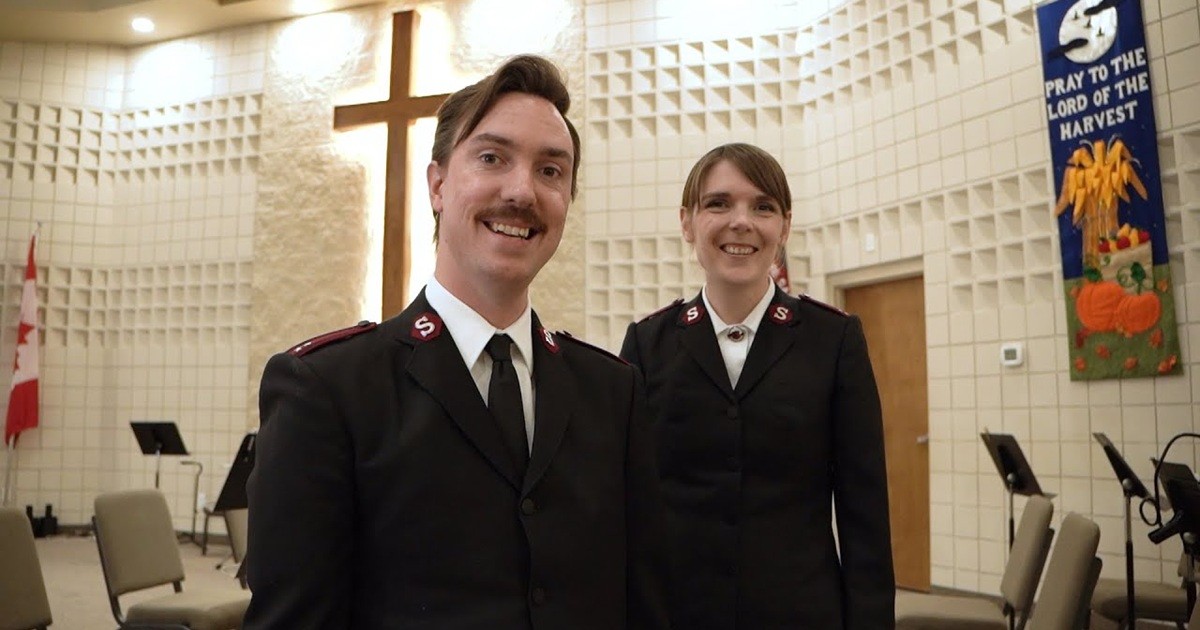Ringing the bells at Christmas, running thrift stores, wearing a uniform—what is it that makes a Salvationist unique in the 21st century, when there is an evangelical church on every corner and hundreds of not-for-profit organizations also offering hope to the community?
These are questions that I’m sure many of you have asked—and maybe have even felt troubled about—over the years. What are we? A church, a charity, a holiness movement? What makes us different? What’s our purpose? Most importantly, what has God called us to as The Salvation Army today?
Everything within me believes that God raised and continues to raise up Salvationists to be “not as others,” as Brigadier Bramwell Taylor said; that “God did not want another church when he created The Salvation Army … the skyline was already crowded with steeples,” as General Albert Orsborn said. I believe that “God has indeed called and raised us up to be a unique expression of the church,” as our secretary for spiritual life development, Kevin Slous, has said.
Part of our Salvationist history is this simple fact: we were different. I don’t mean different as in a little crazy (which we were), but different in the way that we “did” church. When The Salvation Army was born, other churches were offering the traditional style of Christianity, meeting together every Sunday for worship. William and Catherine Booth saw a need and decided to flip that idea on its head. We became an Army of people who served those on the fringes, wore their faith on their collars, offered soup and soap before salvation, accepted all, worked hard and then worshipped together on Sunday.
Our history is built on individuals who were not just Salvationists on Sunday, but fully embodied Salvationism the other six days of the week. We were a unique movement of holy people offering real, relevant and practical love and care. We were soldiers willing to go deep into the trenches, to go for souls and go for the worst. We had a spirit about us; a tough, passionate, committed-to-the-call spirit of Salvationism that held “others” as higher and held firmly, yet humbly, to our mission.
I’m not saying this passion for Salvationism doesn’t exist anymore—spend five minutes with my husband, Daniel, and you’ll see that it’s alive and well. What I am saying is that, as Salvationists, we should be committed to being true to the principles and practices of The Salvation Army, loyal to its leaders and demonstrate the spirit of Salvationism whether in times of popularity or persecution.
And it starts at home.
God has planted a passion for The Salvation Army deep in our hearts and we want to pass that passion on to our three boys. How do we, Daniel and Bhreagh Rowe, teach our boys to respect, love and serve with a spirit of Salvationism? Here are three things we try to do every day.
First, an attitude check. We feel called to serve through The Salvation Army, but it’s also a job and sometimes people complain about their jobs. That’s OK—we’re human. But cynicism can render people completely useless, and we do not want to be useless. Choose to see the positive and work hard to help change the rest.
Teach your kids what is unique about The Salvation Army. The history of the Army is one of action. We are disturbers. We are the fist of the body of Christ punching into the darkness. Our traditions, symbols and methods are not outdated, unbiblical or irrelevant. Teach your kids how to live out our Salvation Army distinctives each day of the week.
Make your Salvationism a team effort. The Salvation Army has many opportunities to serve humbly. Don’t leave your kids out! Our boys have flipped pancakes, rung bells and joined the worship team. They have been welcome sergeants, nursery workers, emergency disaster services workers and public relations personnel. They have seen Mom and Dad dig deep when at their lowest to find that Salvationist spirit to trust God and keep fighting in his strength.
Salvationism did not start in a church building somewhere because a denomination split over theological issues or the colour of the carpet. Salvationism is rooted in the souls and homes of soldiers who dedicated their lives to “go.” The Salvation Army was raised up from the street with a grassroots, tenacious, holy desire for better.
We need that spirit to return to our souls and homes.
This is how an Army survives. This is how we pass on Salvationism to the next generation. This is how we continue to take back the dark every single day of our Salvationist life.
Captain Bhreagh Rowe is the community ministries officer, St. Albert Church and Community Centre, Alta.
Photo: John Gomes










Great article, very informative!!!